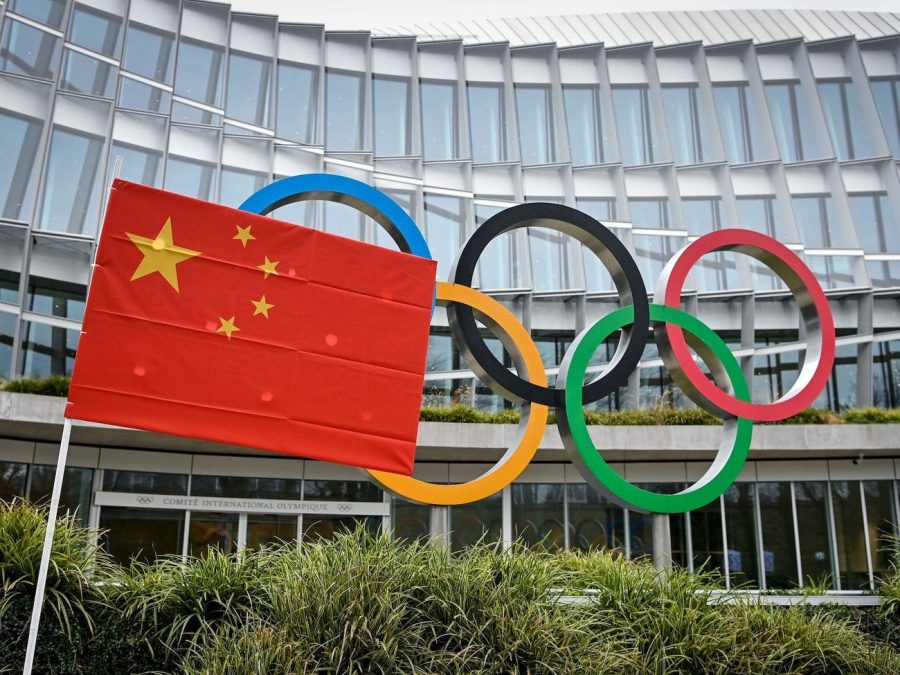Increasing popularity for US to boycott 2022 Winter Olympics
Courtesy of Fabrice Coffrini/Getty Images
While the U.S. Olympic and Paralympic Committee opposes a boycott, the U.S. State Department will have the final say on whether American athletes participate in the 2022 Beijing Olympics.
April 9, 2021
Recently, pressure has mounted for the United States to boycott the upcoming 2022 Winter Olympics over China’s alleged human rights abuses.
The first details of such human rights abuses came from evidence of China’s treatment of the Uighur Muslim population located in Xinjiang. According to the details, over one million people have supposedly been placed in “re-education” camps. The Uighur Muslim population is not the only ethnic minority group being placed into such camps: other ethnic minorities are subject to similar re-education and labor camps in China’s northwestern region. An article published by the British Broadcasting Company (BBC) earlier this year described that the women in these camps are subjected to torture, sexual abuse and rape. These camps are an effort by the Chinese government to bend minorities to the will of the Chinese Communist Party.
When asked about such allegations, Wang Wenbin, a spokesman for China’s foreign ministry, rejected any of the claims or accounts of the Uyghur concentration camps. He also said that any boycotts against China would be unnecessary.
In the United States, there are conflicting views on whether the country should boycott the Winter Olympics. Several human rights groups and congressional Republicans agreed that boycotting would send a strong message to China and other authoritarian countries that the United States is committed to democratic freedom under President Joe Biden.
Others oppose the boycott and are calling on Biden to use America’s global influence to meet with the International Olympic Committee and move the Olympic games to another host country.
Regardless of what approach the United States takes, the decision will be controversial, as the mixing of politics and sports reflects the escalating tensions between China and the United States.
Though no official decision has been made by the U.S. State Department or the U.S. Olympics and Paralympic Committee (USOPC), the committee released a statement on Feb. 3 saying, “We oppose Games boycotts because they have been shown to negatively impact athletes while not effectively addressing global issues.” They additionally stated, “We believe the more effective course of action is for the governments of the world and China to engage directly on human rights and geopolitical issues.”
From the athlete’s perspective, Olympic boycott calls are not really new. Similar circumstances surrounded the 2008 Beijing Olympics. Furthermore, U.S. athletes boycotted the 1980 Moscow Summer Olympics under pressure from President Jimmy Carter. Dozens of other countries joined the United States in the boycott. The decision surrounding the 1980 boycott was viewed by Carter as a sanction in response to the Soviet Union’s invasion of Afghanistan. At the time, some U.S. athletes even filed lawsuits against the USOPC in hopes of overturning the boycott.
Athletes have expressed their frustration about the situation. Mikaela Shiffrin, a two-time Winter Olympic gold medalist in alpine skiing, commented on the situation by saying, “You certainly don’t want to be put in the position of having to choose between human rights, like morality, versus being able to do your job, which on the other hand can bring light to some issues or can actually bring hope to the world at a very difficult time.”



